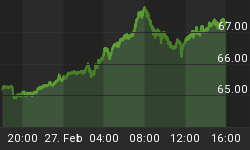Financial crises are happening at shorter intervals and each crisis is being met with an even stronger policy response. Prior to the 2007 financial crisis, the typical response to a recession or financial market dislocation was a predictable quarter or half percent cut in the Federal Funds interest rate. However, in order to "save" the financial system during the 2007 crisis, governments initiated extreme measures such as holding special meetings to cut interest rates by one percent, announcing bailouts on Sunday nights, and instituting costly programs such as cash for clunkers. The most excessive intervention of all was the Federal Reserve's purchasing of more than $1.5 trillion of assets.
In the most recent policy move to date, the European Commission and ECB announced a plan to purchase and guarantee $1 trillion of assets after stating, just days before, that the ECB would not consider such a move. The ECB's incredible change of position took merely one weekend to unfold. Furthermore, the announcement was not accompanied by a detailed plan, which in all likelihood means that the ECB had no plan finalized before surprising the markets. Promising money from unknown sources and flip-flopping on policy measures shows confusion at the highest levels.
Some government officials will argue that a "shock and awe" intervention was necessary to prevent the problem from spreading. Likewise, many believe that the subprime problem would not have morphed into a complete financial panic had the Federal Reserve begun to purchase assets in 2007 instead of waiting until 2009. While intervening earlier may have postponed the collapse, it certainly would have increased the severity of the problem by inflating the bubble further. Similarly, while the misallocation of capital resulting from the ECB's purchasing of distressed government bonds may delay the collapse, the debt problems afflicting European nations are by no means resolved.
Central bankers' actions to save the financial system have led many investors to resume buying risk assets. To date, investors have been willing to pursue such risk because they assume that central banks have the ability and will to fight any challenge that arises. However, government intervention has become so pervasive and manipulative that estimating the future value of any paper asset is becoming impossible. Ultimately, investors will flee government manipulated markets in search of those that offer unhindered price discovery. Gold is an obvious choice because of its historical ability to preserve wealth during episodes of currency devaluation and government insolvency. Gold's recent run following the ECB's announcement shows investors are indeed fleeing the broken financial system.















